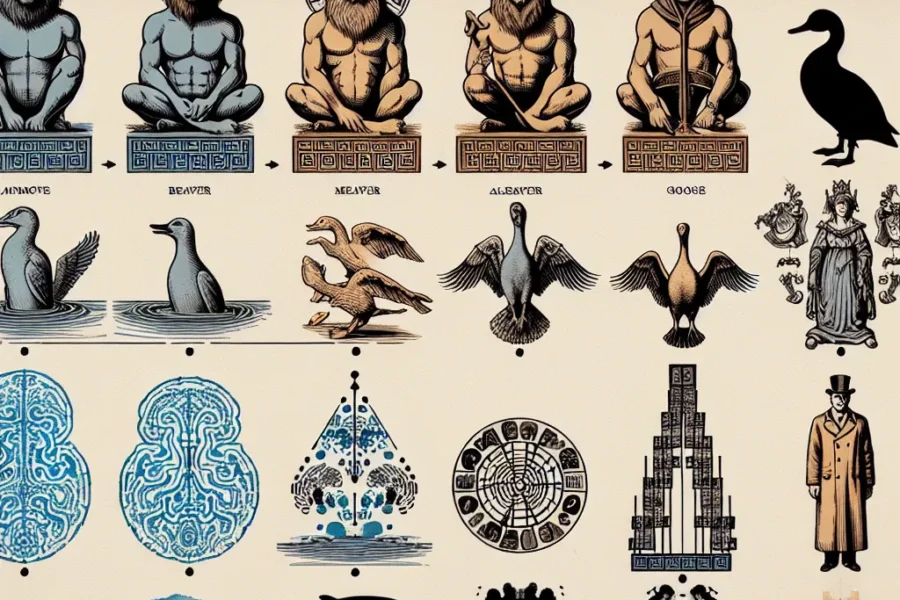Personality tests have become increasingly prevalent tools for self-discovery, career development, and psychological assessment. While these tests captivate the interest of many, the psychology that forms their foundation is often overlooked. This article delves deep into the psychological basis of personality tests, exploring the studies, theories, and methodologies that shape them.
Personality psychology is a branch of psychology that focuses on the study of personality and the individual differences among people. Many personality tests are based on well-established psychological theories and models which aim to codify the complexity of human behavior into identifiable patterns. These theories often attempt to explain how personality traits are formed, how they manifest, and how they influence an individual’s interactions with their environment.
One of the most influential theories that have contributed to the development of personality tests is the Trait Theory. First introduced by Gordon Allport in the 20th century, it posits that personality is composed of a set of traits, which are consistent patterns of thoughts, feelings, and behaviors. Allport suggested that these traits are relatively stable over time and can predict an individual’s behavior across various situations. The Trait Theory later evolved with Raymond Cattell’s 16 Personality Factor theory and the widely known Five-Factor Model, also known as the Big Five, which includes openness, conscientiousness, extraversion, agreeableness, and neuroticism.
Personality tests based on the Big Five, such as the NEO Personality Inventory, are common within professional and personal contexts. They are predicated on the idea that everyone possesses varying levels of each of the five traits, and understanding the composition of these traits within an individual can provide insights into their usual patterns of behavior and emotional responses.
Another psychological theory that has informed the design of personality tests is Carl Jung’s Analytical Psychology. Jung’s theory introduced psychological types, distinguishing individuals based on their preferences in the way they perceive the world and make decisions. His work heavily influenced the development of the Myers-Briggs Type Indicator (MBTI) – a popular personality test that categorizes individuals into 16 distinct personality types based on four dichotomies: introversion vs. extraversion, sensing vs. intuition, thinking vs. feeling, and judging vs. perceiving.
The MBTI and the instruments based on Jungian types are often utilized in career counseling and personal development. Despite their popularity, they have received criticism from the scientific community for their lack of empirical support and the reliability of the categorization of personality types.
Beyond these typologies, the psychological basis for personality assessments also comes from observational research and experiments. Behavioral psychologists such as B.F. Skinner have explored how the environment and conditioning influence personality traits. His work emphasizes that our responses to the environment, which he referred to as operant conditioning, shape our behavior patterns, and by extension, our personalities.
Psychodynamic theories, notably those advanced by Sigmund Freud and his followers, also contribute to the understanding of personality. These theories focus on the internal dynamics of personality, such as the conscious and unconscious mind, and the impact of early childhood experiences. Though most personality tests do not engage directly with the complexities of psychodynamic theories, elements such as the defense mechanisms and the role of unconscious motivations are considered when understanding deeper psychological processes underlying the test responses.
Personality assessments also heavily rely on psychometrics – a field that applies statistical and mathematical methods to psychological measurement. The development of a personality test involves creating a test that is both reliable (yielding consistent results over time) and valid (accurately measuring the personality trait it claims to measure). Establishing the reliability and validity of a test is a rigorous process that involves testing a wide range of populations and employing statistical methods to ensure that the results are not influenced by factors such as chance or bias.
The popularization of personality tests has also led to an increasing focus on cross-cultural considerations in test development. As personality assessment tools are used globally, psychologists must consider cultural differences that may impact how traits are expressed or perceived. This has led to a greater emphasis on cross-cultural studies and ensuring that personality tests are adapted and valid for use in different cultural contexts.
It is important to note that while personality tests offer valuable insights, they are not without their limitations. Issues such as response bias, the oversimplification of complex human behavior, and the potential for tests to be used inappropriately must be considered when interpreting results. When used with a critical eye and in the appropriate context, however, these assessments can prove useful in a variety of settings.
For instance, understanding the psychological basis of personality tests can be invaluable for employers who use these tests for team-building or hiring decisions. By appreciating the theories behind the assessments, they can make better-informed choices and interpret results in a more balanced manner. For individuals, these tests can offer self-insight, facilitating personal growth and a deeper understanding of one’s strengths and weaknesses.
In conclusion, the psychological basis of personality tests is rooted in extensive research and various psychological theories that explore human behavior and mental processes. From the Big Five model to Jungian types, each test draws from a complex history of study and debate. While no personality test can capture the entirety of an individual’s character, they can provide a structured way of understanding aspects of personality and behavior. As interest in personality tests continues to grow, it remains essential for both professionals and individuals to keep the psychological underpinnings in mind, approaching these tools with a balance of curiosity and caution for personal development and psychological assessment purposes.



Leave a Comment